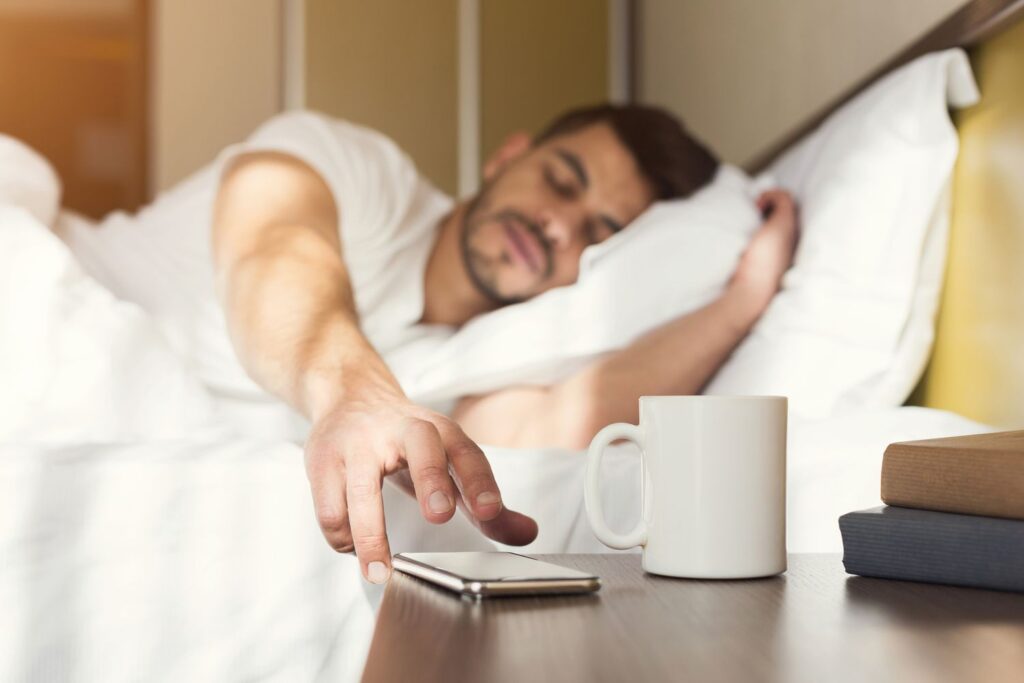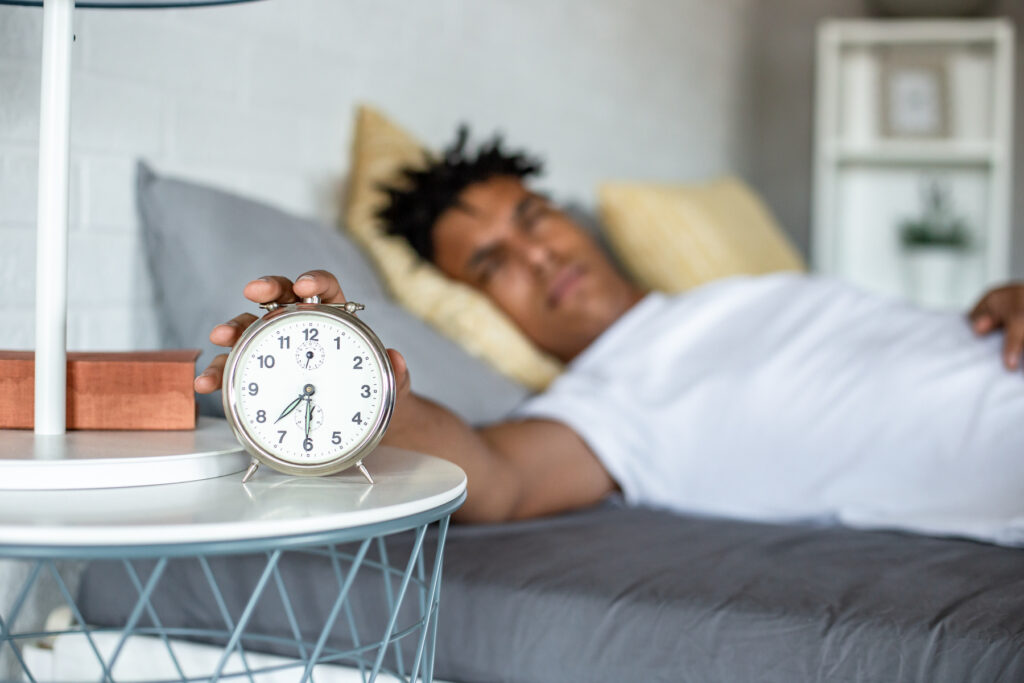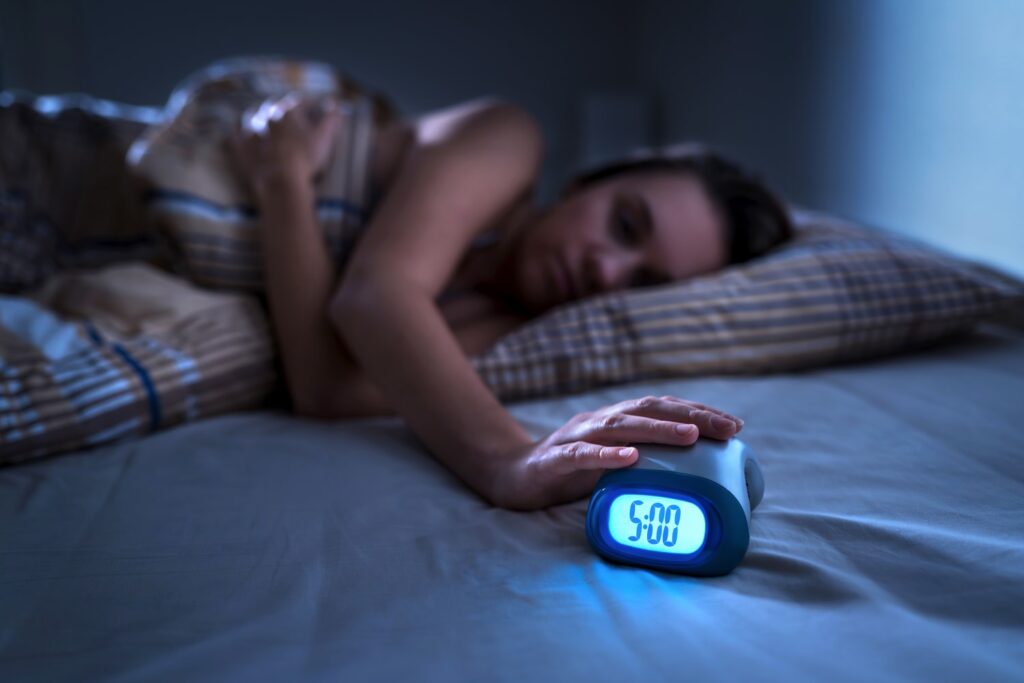Understanding the Importance of Sleep
Sleep is a fundamental aspect of human health, playing a crucial role in physical and mental well-being. It is during sleep that the body repairs itself, consolidates memories, and regulates hormones. However, many individuals struggle to achieve the recommended seven to nine hours of quality sleep each night. This often leads to the dreaded habit of hitting the snooze button repeatedly, resulting in a cycle of poor sleep and daytime fatigue.
Understanding the importance of sleep is the first step towards improving sleep quality. Sleep deprivation can lead to various health issues, including obesity, diabetes, cardiovascular diseases, and mental health disorders. Therefore, recognising the need for restorative sleep is essential for maintaining a healthy lifestyle.
The Consequences of Poor Sleep
When sleep is consistently inadequate, the consequences can be far-reaching. Individuals may experience cognitive impairments, such as difficulty concentrating, memory lapses, and reduced problem-solving abilities. Mood disturbances, including irritability and anxiety, are also common, making it challenging to navigate daily life.
Hitting the snooze button too often is often a symptom of underlying sleep issues that deserve attention. A sleep study Brisbane can provide the insights needed to diagnose and treat these conditions effectively. By understanding the importance of sleep, recognising the signs of sleep disorders, and seeking professional help, individuals can take significant steps towards improving their sleep quality.

Moreover, chronic sleep deprivation can lead to serious health complications. Research indicates that insufficient sleep is linked to an increased risk of developing chronic conditions, such as hypertension and heart disease. Therefore, addressing sleep issues is not merely about feeling tired; it is vital for overall health and longevity.
In addition to these physical and mental health ramifications, poor sleep can also impact one’s social life and professional performance. Individuals may find themselves less engaged in conversations, struggling to maintain relationships, or facing difficulties in collaborative work environments. The lack of sleep can diminish creativity and innovation, making it harder to contribute effectively in both personal and professional settings. Furthermore, the effects of sleep deprivation can extend to one’s safety, as drowsiness can impair reaction times, increasing the risk of accidents, particularly when driving or operating machinery.
Furthermore, the modern lifestyle often exacerbates sleep issues. The prevalence of screens and digital devices has led to an increase in blue light exposure, which can interfere with the body’s natural circadian rhythms. This disruption can make it even more challenging to fall asleep and stay asleep, creating a vicious cycle that is difficult to break. Establishing a calming bedtime routine, minimising screen time before sleep, and creating a conducive sleep environment are essential strategies that can help mitigate these challenges and promote better sleep hygiene.
Learn more on: Unsure Where to Start Try a Sleep Test Adelaide Professionals Suggest
What is a Sleep Study?
A sleep study, or polysomnography, is a comprehensive test used to diagnose sleep disorders. It involves monitoring various physiological parameters during sleep, including brain activity, eye movements, heart rate, and breathing patterns. This data helps healthcare professionals identify specific sleep issues, such as sleep apnoea, insomnia, or restless leg syndrome.
Sleep studies can be conducted in a sleep clinic, where patients spend the night in a controlled environment, or at home with portable monitoring devices. The choice of setting often depends on the severity of the symptoms and the specific conditions being investigated.
Types of Sleep Studies
There are several types of sleep studies, each designed to assess different aspects of sleep. The most common include:
- Polysomnography: This comprehensive test monitors brain waves, oxygen levels, heart rate, and breathing, providing a detailed overview of sleep stages and disturbances.
- Home Sleep Apnoea Testing: Designed for patients suspected of having sleep apnoea, this test can be conducted in the comfort of one’s home, using portable equipment to monitor breathing patterns.
- Multiple Sleep Latency Test (MSLT): This test measures how quickly a person falls asleep in a quiet environment during the day, helping to diagnose conditions like narcolepsy.

How a Sleep Study in Brisbane Can Help
In Brisbane, various specialised clinics offer sleep studies to help individuals understand and address their sleep issues. By undergoing a sleep study, patients can gain insights into their sleep patterns and receive tailored recommendations for improvement.
One of the primary benefits of a sleep study is the accurate diagnosis of sleep disorders. Many individuals may not realise they have a condition like sleep apnoea, which can lead to severe health complications if left untreated. A sleep study provides the necessary data to confirm or rule out such disorders, allowing for timely intervention. Learn more about complications on https://pubmed.ncbi.nlm.nih.gov/36907609/
Personalised Treatment Plans
Once a diagnosis is established, healthcare professionals can develop personalised treatment plans. These plans may include lifestyle modifications, cognitive behavioural therapy for insomnia (CBT-I), or medical interventions, such as continuous positive airway pressure (CPAP) therapy for sleep apnoea.
Personalised treatment is vital because sleep disorders can vary significantly from person to person. What works for one individual may not be effective for another. Therefore, a tailored approach ensures that each patient receives the most appropriate care based on their specific needs and circumstances.
Improving Sleep Hygiene
In addition to medical interventions, a sleep study can highlight the importance of good sleep hygiene. Sleep hygiene refers to a set of practices and habits that promote quality sleep. These may include maintaining a regular sleep schedule, creating a comfortable sleep environment, and avoiding stimulants like caffeine and electronics before bedtime.
By incorporating good sleep hygiene practices into daily routines, individuals can enhance their sleep quality and overall well-being. A sleep study can serve as a catalyst for these positive changes, empowering patients to take control of their sleep health.
Recognising the Signs of Sleep Disorders
Identifying the signs of sleep disorders is crucial for seeking timely help. Many people dismiss their sleep issues as mere fatigue or stress, but recognising the symptoms can lead to early intervention and improved health outcomes.
Common Symptoms to Watch For
Some common symptoms of sleep disorders include:
- Excessive daytime sleepiness, even after a full night’s sleep.
- Frequent snoring or gasping during sleep.
- Difficulty falling or staying asleep.
- Nightmares or restless sleep.
- Morning headaches or dry mouth.
If any of these symptoms resonate, it may be time to consider a sleep study. Early diagnosis and treatment can significantly improve quality of life and reduce the risk of associated health problems.
Preparing for a Sleep Study
Preparation for a sleep study is relatively straightforward, but being informed can help alleviate any anxiety about the process. Patients are typically advised to follow specific guidelines to ensure accurate results.
What to Expect Before the Study
Before the study, patients may be asked to keep a sleep diary for a week, noting their sleep patterns, bedtime routines, and any symptoms experienced. This information can provide valuable context for the healthcare provider.
On the night of the study, patients should arrive at the clinic with comfortable sleepwear and any necessary personal items. Technicians will attach sensors to monitor various physiological parameters, but the process is non-invasive and designed to be as comfortable as possible. To read more about comfortable click here.
During the Sleep Study
During the sleep study, patients will be monitored throughout the night. Although the presence of sensors and equipment may feel unusual, most individuals find they can still sleep comfortably. The data collected will provide crucial insights for diagnosing sleep disorders.
Post-Study Follow-Up
After the sleep study, a follow-up appointment is typically scheduled to discuss the results. Healthcare professionals will review the findings and explain any diagnoses, as well as recommended treatment options.
Implementing Changes
Implementing changes based on the findings of a sleep study can lead to significant improvements in sleep quality. Whether it involves lifestyle modifications, therapy, or medical interventions, taking proactive steps can help individuals regain control over their sleep.
In many cases, patients report feeling more energised and alert after addressing their sleep issues. Improved sleep can enhance productivity, mood, and overall quality of life.
Conclusion
Investing in sleep health is an investment in overall well-being. With the right support and interventions, it is possible to break the cycle of poor sleep and embrace a more restorative sleep pattern, leading to a healthier, happier life.

